Filter by
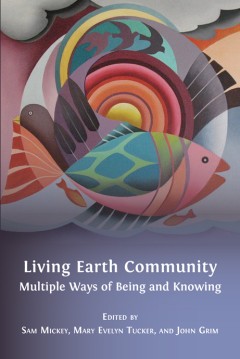
Living earth community: multiple ways of being and knowing
Living Earth Community: Multiple Ways of Being and Knowing is a celebration of the diversity of ways in which humans can relate to the world around them, and an invitation to its readers to partake in planetary coexistence. Innovative, informative, and highly accessible, this interdisciplinary anthology of essays brings together scholars, writers and educators across the sciences and humanities…
- Edition
- -
- ISBN/ISSN
- 9781783748051
- Collation
- xxxviii, 243 p. : ill. : ind. ; 24 cm
- Series Title
- -
- Call Number
- 304.2 LIV l
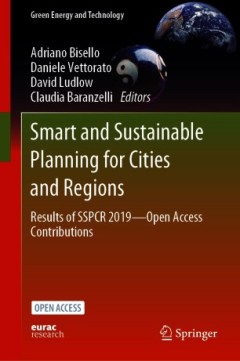
Smart and sustainable planning for cities and regions : results of SSPCR 2015
This open access book offers a selection of research papers and case studies presented at the 3rd international conference “Smart and Sustainable Planning for Cities and Regions”, held in December 2019 in Bolzano, Italy, and explores the concept of smart and sustainable planning, including top contributions from academics, policy makers, consultants and other professionals. Innovation pr…
- Edition
- -
- ISBN/ISSN
- 9783030577643
- Collation
- xvii, 307p. : ill.
- Series Title
- -
- Call Number
- 307.1216 SMA s
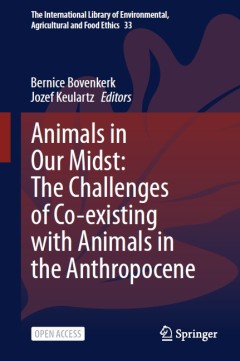
Animals in our midst : the challenges of co-existing with animals in the anth…
This Open Access book brings together authoritative voices in animal and environmental ethics, who address the many different facets of changing human-animal relationships in the Anthropocene. As we are living in complex times, the issue of how to establish meaningful relationships with other animals under Anthropocene conditions needs to be approached from a multitude of angles. This book offe…
- Edition
- -
- ISBN/ISSN
- 9783030635237
- Collation
- xiii, 579p. : ill.
- Series Title
- -
- Call Number
- 179.3 ANI a
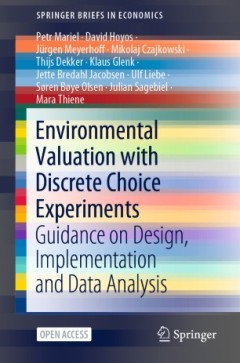
Environmental valuation with discrete choice experiments : guidance on design…
This open access book offers up-to-date advice and practical guidance on how to undertake a discrete choice experiment as a tool for environmental valuation. It discusses crucial issues in designing, implementing and analysing choice experiments. Compiled by leading experts in the field, the book promotes discrete choice analysis in environmental valuation through a more solid scientific basis …
- Edition
- -
- ISBN/ISSN
- 9783030626693
- Collation
- xiii, 129p. : ill.
- Series Title
- -
- Call Number
- 333.7 ENV e
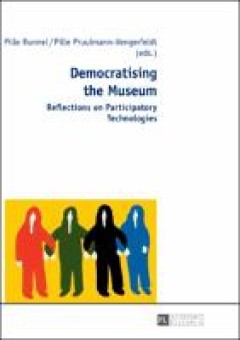
Democratising the museum : reflections on participatory technologies
Democratising the museum is a collection of articles reflecting upon the problem of how participation, technologically mediated or not, can support the museum in the process of becoming more accessible. The open museum shares power with its visitors while negotiating professionalism and the role of the museum in a modern society. The book looks at the roles and struggles of audiences/visitors a…
- Edition
- -
- ISBN/ISSN
- -
- Collation
- 240 p.
- Series Title
- -
- Call Number
- 069 DEM d
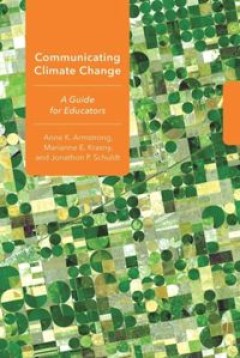
Communicating climate change : a guide for educators
Environmental educators face a formidable challenge when they approach climate change due to the complexity of the science and of the political and cultural contexts in which people live. There is a clear consensus among climate scientists that climate change is already occurring as a result of human activities, but high levels of climate change awareness and growing levels of concern have not …
- Edition
- -
- ISBN/ISSN
- 9781501730801
- Collation
- IX, 131 p.
- Series Title
- Cornell Series in Environmental Education
- Call Number
- 363.73874071073 ARM c
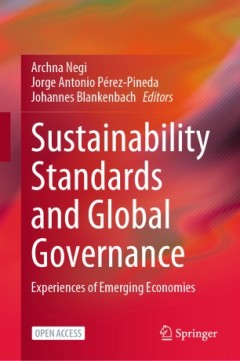
Sustainability standards and global governance : experiences of emerging econ…
This open access book focuses on the issue of sustainability standards from the perspective of both global governance frameworks and emerging economies. It stems from the recognition that the accelerated pace of economic globalization has generated production and consumption patterns that are generating sustainability concerns. Sustainability standards (and regulations) are increasingly being u…
- Edition
- -
- ISBN/ISSN
- 9789811534737
- Collation
- xxvii, 224p. : ill.
- Series Title
- -
- Call Number
- 338.927 SUS s
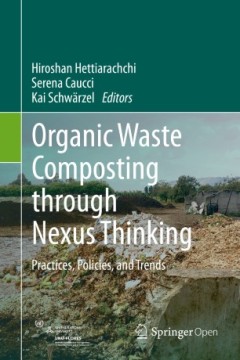
Organic waste composting through nexus thinking : practices, policies, and tr…
Organic waste composting is another excellent example to demonstrate the power and the benefits of nexus thinking. Even though organic waste composting itself is not a new topic, those who want to start a new project or align an ongoing project with nexus thinking, find it difficult to gather the necessary information. With nine case studies from four continents, this book aims to fill above ga…
- Edition
- -
- ISBN/ISSN
- 9783030362836
- Collation
- viii, 232p. : ill.
- Series Title
- -
- Call Number
- 668.6375 ORG o
International rainwater catchment systems experience
Harvesting rain and using it for drinking and domestic use will help to give scattered rural households and under-served city dwellers access to water. The world cannot ignore using rain - as the source of all water. This book presents stories and experiences from some 15 countries from all over the globe, developed and less developed. There are many more experiences that can be highlighted, bu…
- Edition
- -
- ISBN/ISSN
- 9781789060584
- Collation
- xxiii, 245p.: ill.
- Series Title
- -
- Call Number
- 628.142 INT i
Water-wise cities and sustainable water systems: concepts, technologies and a…
Building water-wise cities is a pressing need nowadays in both developed and developing countries. This is mainly due to the limitation of the available water resources and aging infrastructure to meet the needs of adapting to social and environmental changes and for urban liveability. This is the first book to provide comprehensive insights into theoretical, systematic, and engineering aspects…
- Edition
- -
- ISBN/ISSN
- 9781789060768
- Collation
- xx, 453p.: ill.
- Series Title
- -
- Call Number
- 628.1 WAT w
 Computer Science, Information & General Works
Computer Science, Information & General Works  Philosophy & Psychology
Philosophy & Psychology  Religion
Religion  Social Sciences
Social Sciences  Language
Language  Pure Science
Pure Science  Applied Sciences
Applied Sciences  Art & Recreation
Art & Recreation  Literature
Literature  History & Geography
History & Geography